Petrochemicals Automotive Technopolymers 26-09-2019 - Arhive
Petrochemicals Automotive Technopolymers
China – Polyethylene Terephthalate
PET and its chain are steady,but weak.
Crude oil price is steady,but weak.
Polyamide 6 and its chain are steady.
Acrylonitrile is steady.
PET Bottle grade export 815/870 $/ton – PET Bottle grade domestic market 6,750/6,850 yuan/ton – PET Filament grade SD domestic market 6,600/6,700 yuan/ton – PET Filament grade BR domestic market 6,700/6,800 yuan/ton
PTA Taiwan 655/665 $/ton – PTA domestic market 5,050/5,150 yuan/ton – MEG 655/665 $/ton – MEG domestic market 5,100/5,200 yuan/ton – PX Korea 770/785 $/ton
Polyester POY 150D/48F domestic market 7,800/7,900 yuan/ton – Polyester DTY 150D/48F domestic market 9,200/9,300 yuan/ton – Polyester Staple PSF domestic market 7,050/7,150 yuan/ton
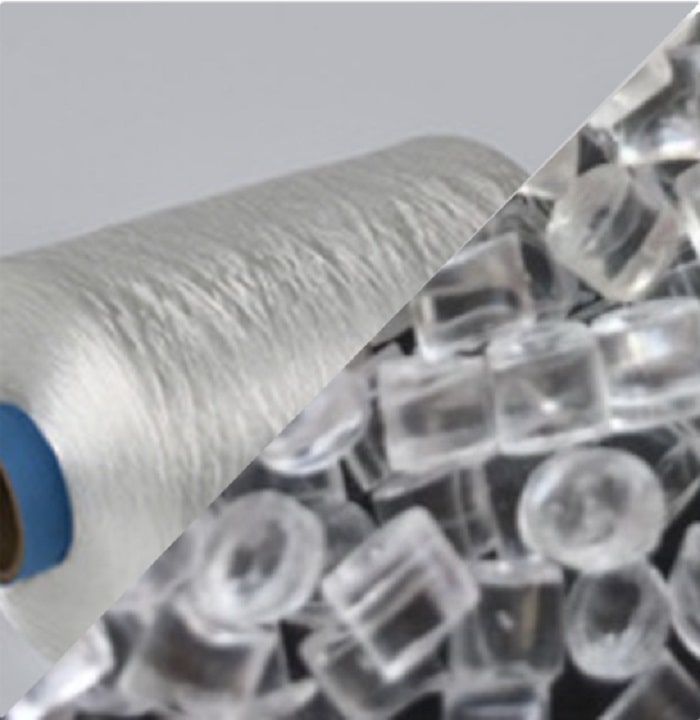
Crude Oil Prices Trend

-Film Recycling – Thinking Beyond the Bag & Working Together to Find Solutions
Commonly referred to as the number one recycling contaminant, plastic bags and other film products like paper towel wrap and overwrap on cans and bottles can be a real nuisance for many recycling programs.
Very few municipalities offer curbside collection programs that include these materials, and most communities’ websites include clear instructions to keep plastic film out, such as those depicted here.
Yet consumers continue to place bags and film in their recycling bins, causing equipment shutdowns at material recovery facilities (MRFs) and preventing these items from being recycled through the correct outlets.
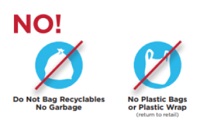
Despite a wave of financial adversity that has tormented US onshore E&P companies lately, Rystad Energy does not view this as a harbinger of doom for the shale industry going forward.Petrochemicals Automotive Technopolymers
“In a nutshell, we do not believe the recent bankruptcies that have beset a number of shale players are indicative of an industry-wide epidemic,” says Alisa Lukash, a senior analyst on Rystad Energy’s North American Shale team.
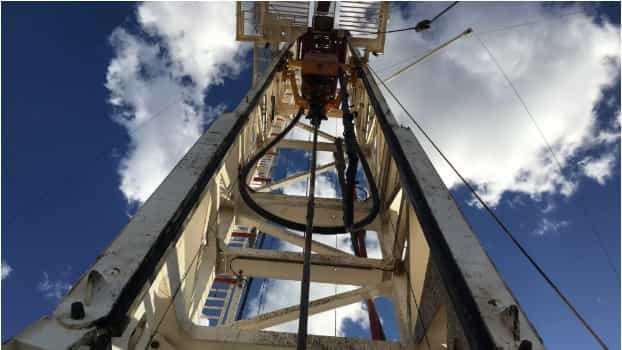
-New Opportunities to Fuel the Expansion of Bio Based Paraxylene Market
In recent years, the global market has shown a strong acceptance for bio-based chemicals and materials in the light of growing considerations over sustainability.
Paraxylene is an aromatic hydrocarbon compound, derived from benzene, and is colorless, toxic, highly flammable and hazardous in nature.Petrochemicals Automotive Technopolymers
Owing to its pernicious properties, various government and environmental organizations have enforced regulations for the development of bio-based paraxylene (Bio-PX).
Bio based paraxylene is made of renewable raw materials, such as glucose, starch, cellulose and vegetable oils. The advantage of utilizing these raw material is that they can be processed in an existing recycling process and can be re-used.
Bio based paraxylene is increasingly being used in bio based plastic PET bottles (Bio-PET) and other bio based plastic applications.
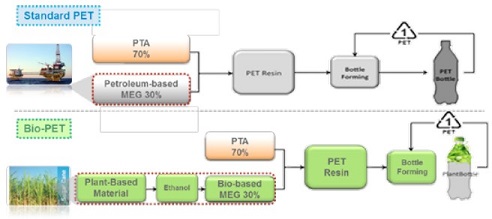
Whether it be part of legislation or conservation efforts, many brands are switching from plastic to a sustainable alternative, often PLA, without knowing the real truth about the dangers of a PLA straw.Petrochemicals Automotive Technopolymers
Plastic pollution is one of the biggest environmental challenges of our time, with statistics showing there will be more plastic in the ocean than there are fish, by volume, by 2050. Restaurants, venues and establishments worldwide are working to combat plastic pollution by eliminating plastic straws.Petrochemicals Automotive Technopolymers

-Why is clarification needed on bioplastic recycling?
Regarding FEAD’s (European Federation of Waste Management and Environmental Services) latest position paper Biodegradable and Bio-Based Plastics, European Bioplastics (EUBP) believes that FEAD displays an incomplete perception on how a circular economy can be achieved.
Unfortunately, the association exclusively focuses on mechanical recycling while at the same time refusing biodegradable plastic solutions.
Scepticism of stakeholders towards the relevance of biodegradable certified compostable plastics in a circular economy usually stems from a vague notion about what these materials and corresponding products can actually contribute to efficient waste management.Petrochemicals Automotive Technopolymers

-Sulzer’s range of innovative technologies at K 2019
The plastic processing and manufacturing sectors are looking for innovative technologies and solutions to reduce environmental footprints. At K 2019, Sulzer will show its commitment to sustainable manufacturing and recycling with its wide range of technologies.
These not only make polymer production more efficient, but also back the development of green plastic materials, as well as give a new life to materials that are currently non-recyclable.
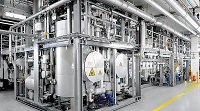
-Venator to launch ultra-low moisture TiO2 pigment at K 2019
At K 2019, Venator will launch a new titanium dioxide (TiO2) pigment to the global plastics industry.
TIOXIDE TR29 is Venator’s highest performing white pigment for low moisture applications and demanding processing conditions.
Combining ultra-low moisture content, with excellent dispersion properties and a high packing fraction, TIOXIDE TR29 is designed for use in the manufacture of highly technical thin films, and in engineering polymers where moisture sensitivity is a consideration.
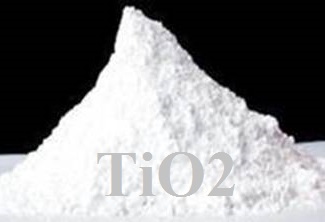
-UK government moves to end “vague and misleading” bioplastic terminology
The UK government has called for experts to help it develop standards for bioplastics and biodegradable plastics, amid rising concern over greenwashing.
The government has published a document seeking evidence on potential “demand, benefits, and implications of standards for bio-based and biodegradable plastics”.
The call is set out in a paper, called Standards for bio-based, biodegradable, and compostable plastics: call for evidence, which was published earlier this summer.
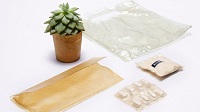
-Revised AATCC TM100 improves antibacterial testing
A collaborative effort of members of AATCC RA31 committee, antimicrobial activity, resulted in revision of AATCC TM100, test method for Antibacterial Finishes on Textile Materials: Assessment of. The committee spent lot of time to understand issues of the test method and how it affected variability of test results from multiple laboratories around the world. Petrochemicals Automotive Technopolymers
AATCC TM100 is one of the most commonly used test methods to measure antimicrobial activity on treated textiles. RA31 committee members reviewed the history, common practices within laboratories, and how the test method is used to measure antimicrobial performance.
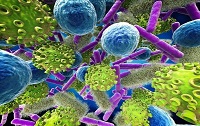
Avery Dennison won the Environmental and Sustainability Award for its recycled PET (rPET) liner at the 2019 Label Industry Global Awards ceremony in Brussels.
This is the second consecutive year Avery Dennison has been recognised with this prestigious award for its advances in sustainable labelling products and services.
The Environmental and Sustainability Award, part of the Global Label Industry Awards programme, is one of the label industry’s highest accolades, presented during the Labelexpo Europe show in recognition of a specific sustainable label product or process introduced to the industry in 2018.
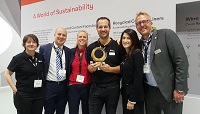
-Sustainable Technology for SAP in Development
Archer Daniels Midland Company and LG Chem partner to develop biobased acrylic acid
Archer Daniels Midland Company (ADM) and LG Chem announced a joint development agreement to create biobased acrylic acid, a foundational element required in the manufacture of superabsorbent polymers (SAP) used in a range of hygiene products, including diapers.
Under the terms of this agreement, ADM and LG Chem, one of the world’s leading manufacturers of acrylic acid, will work jointly towards economically viable commercial production of a 100% biobased acrylic acid using ingredients from ADM corn processing. Although there is growing industry demand for products developed from renewable materials, acrylic acid is currently produced almost exclusively from petrochemicals.

